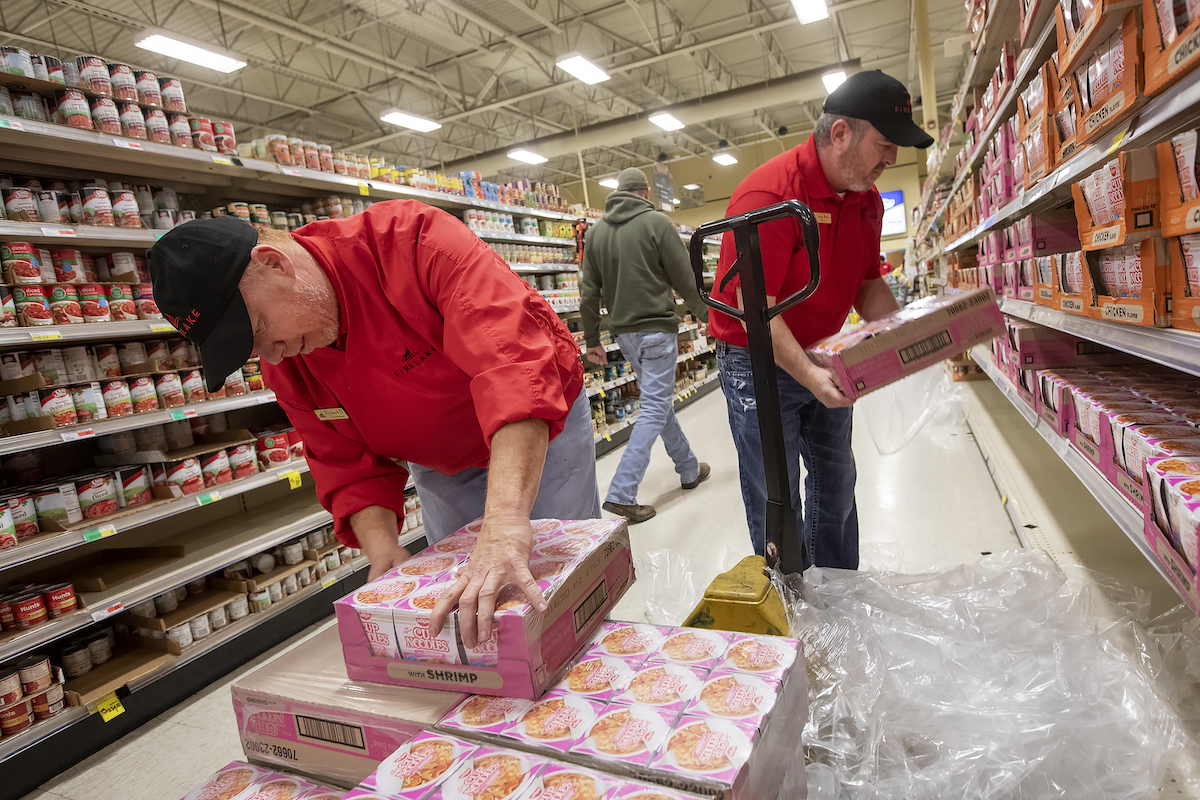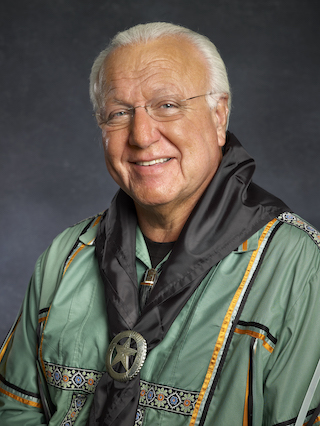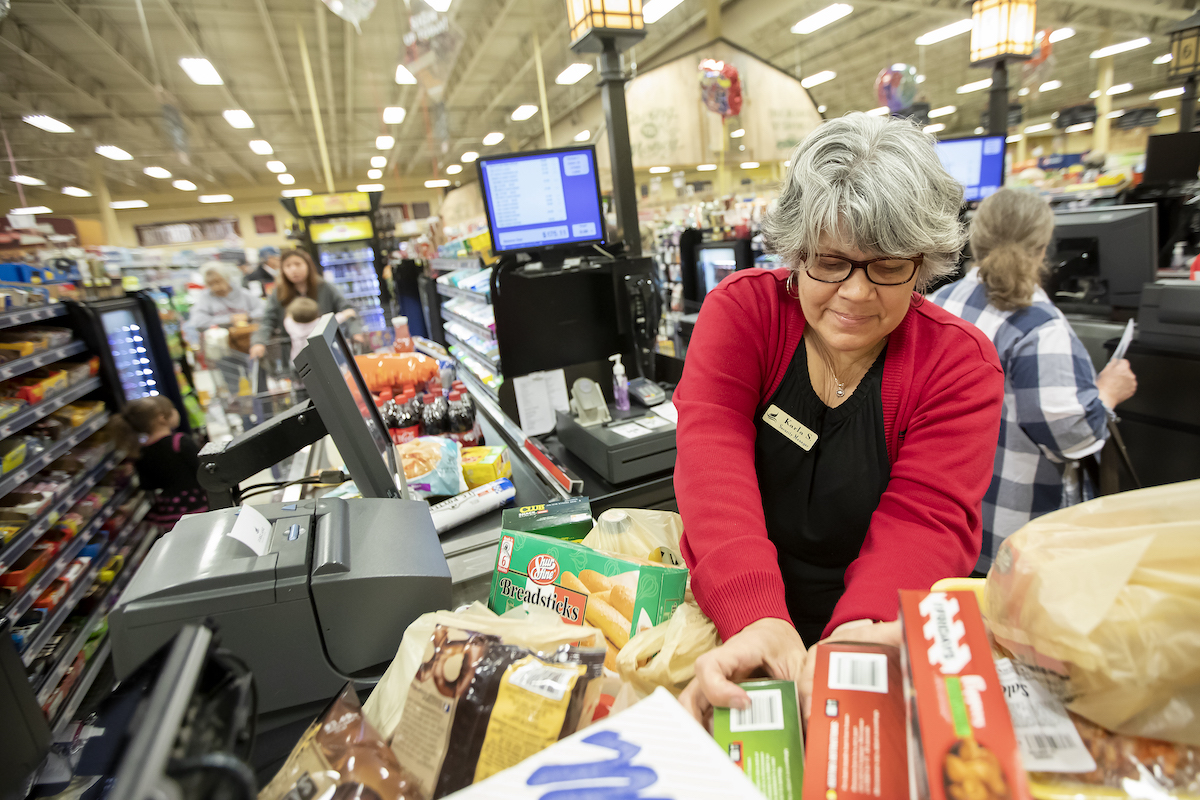
- Details
- By Matthew Gryczan
- Economic Development
SHAWNEE, Okla. — For John “Rocky” Barrett, one main goal for the Citizen Potawatomi Nation is to keep a dollar spent within its jurisdiction as long as it can. The way to do that locally is for the tribe to provide products and services needed for daily life.
Think of the ways that the average person spends a dollar in the day, and it’s likely there’s a CPN-owned business catering to those needs within the tribal nation that’s situated in Cleveland and Pottawatomie Counties, near the center of Oklahoma.
Need some groceries? Shop at the FireLake Discount Foods stores in Shawnee, Tecumseh, and McLoud. Need gasoline? Three truck plazas pump a total of more than 3 million gallons of fuel per month. Want something to eat? Take your pick of menus at seven different restaurants and wash it down with a beverage from a craft brewery the tribe plans to open this year. Want to recreate? Have fun at the FireLake Golf Course, bowling alley and ball fields, or visit the Grand Casino for the less athletic.
Want more news like this? Get the free weekly newsletter.
More importantly, the dollars are kept circulating within CPN borders at several behind-the-scenes businesses that include the largest tribally owned national bank in the country, a wholesale grocery distribution operation, water treatment and distribution business, and a soon-to-be plastic pipe manufacturing company.
 John “Rocky” Barrett, tribal chairman of Citizen Potawatomi Nation. (Courtesy photo)“Any chamber of commerce in the country hopes to get three to four turns of a dollar in their communities before it leaves. That’s the gold standard,” Tribal Chairman Barrett told Tribal Business News. “We are not there yet, but we’re working at it.”
John “Rocky” Barrett, tribal chairman of Citizen Potawatomi Nation. (Courtesy photo)“Any chamber of commerce in the country hopes to get three to four turns of a dollar in their communities before it leaves. That’s the gold standard,” Tribal Chairman Barrett told Tribal Business News. “We are not there yet, but we’re working at it.”
There are two main benefits for a strongly circulating dollar within the CPN jurisdiction: It feeds the cycle of more jobs that employ people who in turn create more demand, and the nation collects 8.5 percent sales tax, which funds the government enterprises. The jurisdiction employs about 2,400 people, down from total employment of 2,700 before the onset of COVID-19.
It’s CPN’s responsibility to make sure it knows the markets it enters, said Barrett, who has served as tribal chairman since 1985, making him one of the longest-serving elected tribal leaders in the United States.
“We run a very businesslike operation. We keep track of our money well,” he added, citing the fact that in 2020, the CPN accounting department received the Certificate of Achievement for Excellence in Financial Reporting from the Government Finance Officers Association for the 32nd year in a row.
One example of how CPN strives to keep dollars in the community can be found in the way it is launching Sovereign Pipe Technology, a tribally chartered corporation that hopes to deliver specialty plastic piping to customers beginning in August.
The building for the company was completed about six months ago in the Iron Horse Industrial Park near Shawnee, and managers are now waiting for delivery of plastic extrusion equipment that will allow them to manufacture piping from 2 inches to 48 inches in diameter for the water, natural gas and cable industries.
“Before we started the project, we went around to the large pipe distributors and pre-sold our future production,” Barrett said. But CPN also is an expert in running pipe for water lines and geothermal heat pumps.
“We operate the only tribally owned water district in the state of Oklahoma, and as a tribe, we have done the most in installing ground-source heat pumps – used in our large facilities such as our grocery store, arena, casino and bowling center,” he said. “We lay an awful lot of pipe, so we knew something about the business.”
When it is up and running, Sovereign Pipe expects to employ about 30 people.
 Karla Sample, security manager, bags groceries at Citizen Potawatomi Nation-owned FireLake Discount Foods in Shawnee, Okla. (Courtesy photo)Another example of how CPN is using vertical integration is through its grocery business launched in 2001. At 84,000 square feet of space, FireLake Discount Foods is billed as the largest individually owned grocery store in the state of Oklahoma. The company has smaller stores in Tecumseh, Shawnee and McLoud, with plans to build a new location in Choctaw.
Karla Sample, security manager, bags groceries at Citizen Potawatomi Nation-owned FireLake Discount Foods in Shawnee, Okla. (Courtesy photo)Another example of how CPN is using vertical integration is through its grocery business launched in 2001. At 84,000 square feet of space, FireLake Discount Foods is billed as the largest individually owned grocery store in the state of Oklahoma. The company has smaller stores in Tecumseh, Shawnee and McLoud, with plans to build a new location in Choctaw.
To supply the stores, CPN developed a wholesale grocery distribution business that allows it to keep competitive in the tight-margin supermarket industry.
“We bring all of our groceries, meat and produce in from Texas, and, in order to facilitate that transportation, we have a wholesale company that sells to other independent grocers,” Barrett said. “So if we buy a load of green beans from Amarillo, one-half to two-thirds of that truckload is sold off at truckload prices to independent grocers along the way, and that lets us lay in our groceries at costs that are competitive to Walmart.”
CPN even has a hand in the way dollars are circulated within the jurisdiction. It owns First National Bank & Trust Co., which Barrett predicts will exceed $1 billion dollars in assets this year. “When we bought (its predecessor) First Oklahoma Bank in 1989, it was a little $14 million asset business operating out of a double-wide trailer in a parking lot — a little itty-bitty thing,” he said.
The bank is nearing the $1 billion milestone after its acquisition last year of The First State Bank, a larger bank with a strong commercial lending portfolio that also gave First National access to the Oklahoma City metropolitan market, CEO Bryan Cain told Tribal Business News at the time the deal was announced.
“The reason we’re at where we’re at today is because of our tribal leadership,” Cain said at the time. “They have had the foresight to put the capital back so that when there was an opportunity to grow, we’d be able to take advantage of that opportunity.”
Barrett also noted that owning the bank enables the tribe to take advantage of its cash flow from gaming operations and other enterprises and put that money to work within the reservation.
First National had $646.1 million in total assets as of Sept. 31, 2021, the most recent data available from the FDIC. The bank reported $493.4 million in net loans, including about $82.2 million in commercial loans. First National had nearly $524.6 million in deposits.
As the first tribe in the United States to own a minor league basketball team through an agreement with The Basketball League, CPN hopes to keep entertainment dollars in the community through its Potawatomi Fire basketball team that will be playing at 5,000-seat FireLake Arena, near Shawnee. The team has signed eight of its 12 players during the current draft in anticipation of the season’s start in late April. Barrett said the team will play on a professional maple wood court that can also be used for high school, junior college and college basketball tournaments.
Barrett emphasized that one key to the tribe’s success is that CPN-owned companies don’t just cater to tribal members, but to the community at large.
“If we didn’t have the public available to us, we wouldn’t have success in any of our businesses,” he said.
--
About the author: Matthew Gryczan is founder of SciTech Communications and a veteran business journalist and editor, including for the likes of Crain’s Detroit Business and The Grand Rapids Press.